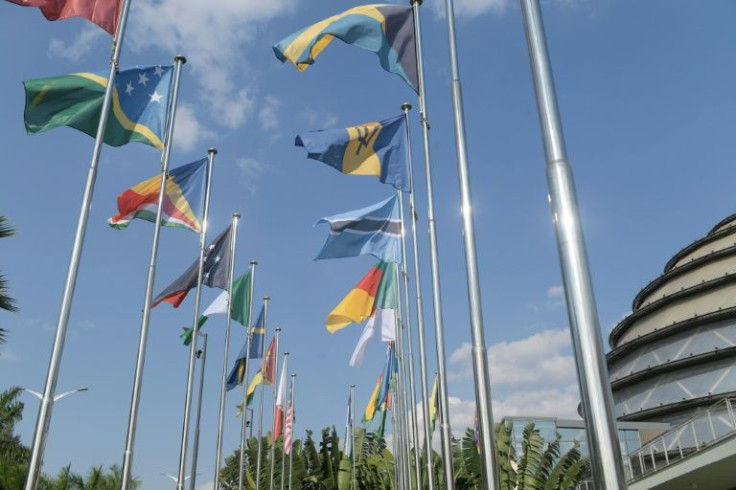West African States Gabon And Togo Join Commonwealth
Gabon and Togo joined the Commonwealth on Saturday, becoming the latest nations with no historic ties to Britain to enter the English-speaking club headed by Queen Elizabeth II.
The 54-nation group of mostly former British colonies accepted Togo and Gabon's application for membership on the final day of its leadership summit in Rwanda.
"We have admitted Gabon and Togo as new members, and we all welcome them to the Commonwealth family," Rwandan President Paul Kagame said at the closing press conference.
The French-speaking West African states are the first new members to join the Commonwealth since Rwanda in 2009.
Togo's Foreign Minister Robert Dussey said membership opened the door to 2.5 billion consumers in the Commonwealth realm, offered new education opportunities, and tapped a "craze" for English among his countrymen.
"Togo's membership is motivated by the desire to expand its diplomatic, political, and economic network... as well as to get closer to the English-speaking world," he told AFP.
It also allowed the small and developing nation of 8.5 million to redefine bilateral relations with the UK outside the European Union in the aftermath of Brexit, he added.
Francophone states have also sought Commonwealth membership in recent years to pivot away from France, analysts said.
Togolese political scientist Mohamed Madi Djabakate said the move would prove popular as French influence in Togo was often blamed for its economic woes.
"Togo joining the Commonwealth is better for many people than sharing the French language and culture, which at the end of the day has not promoted development," he told AFP.
Rwanda's own membership came at a time of immense strain between Kigali and Paris, and the east African state has forged close ties with the UK in the years after its admission, including a controversial migrant deal agreed this year.

Gabonese President Ali Bongo said his country was "making history" by joining the group.
"Sixty-two years after its Independence, our country is getting ready to breakthrough with a new chapter," Bongo said in a statement on Twitter.
"It's a world of opportunities for Gabon on the economic, diplomatic & cultural levels."
Their admission is a boon for the Commonwealth at a time of renewed discussion over its relevance and purpose.
British Prime Minister Boris Johnson said the interest from new members proved the organisation was alive and well.
But it could also raise questions about the Commonwealth's espoused commitment to good governance and democracy as fundamental values of its charter.
Oil-rich Gabon, a former French colony on the Atlantic Ocean, has been ruled by the Bongo family for 55 years.
Ali Bongo took over after his father's death and was returned to power in 2016 following an election marred by deadly violence and allegations of fraud.
Togo, a former German then French colony, has also been under dynastic rule for more than half a century.
General Gnassingbe Eyadema governed with an iron fist from 1967 until his death in 2005, upon which his son Faure Gnassingbe took power.
He was re-elected in polls that were all contested by the opposition.
Born out of the British Empire, the Commonwealth represents one-third of humanity and spans nations across Africa, Asia, Europe and the Americas.
Mozambique -- a former Portuguese colony -- became the first Commonwealth member without historic links to Britain when it joined in 1995.
© Copyright AFP 2024. All rights reserved.





















